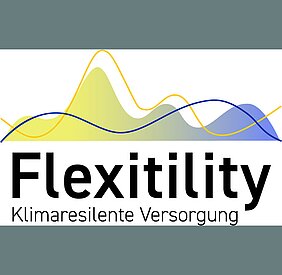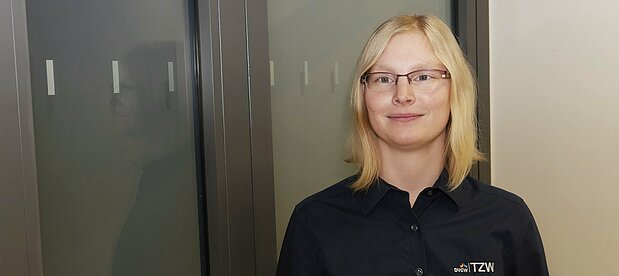What does a flexible and climate-resilient water supply look like in the future? This question was investigated in the Flexitility project. During the implementation phase of the project, the TZW team and research partners focused specifically on the impact of decentralized drinking water storage.
Drinking water supply faces the challenge of adapting to changing climatic and socio-economic conditions. The FLEXITILITY project aimed to investigate the socio-technical flexibilization of urban infrastructures to enhance climate resilience and efficiency. This part of the project focused on decentralized drinking water storage tanks and evaluated their potential impact on existing supply networks under changing climatic conditions. Technical, hygienic, economic, and regulatory aspects were considered. In addition, the influence of such storage systems on hydraulic network stability and supply security was analyzed.
To evaluate the use of decentralized storage, two pilot plants were planned, constructed, and operated for more than one year. To ensure hygienic safety in the buildings housing the pilot installations, an extensive hygiene monitoring concept was implemented during the test phase.
The evaluation of microbiological results from both systems showed that hygienically safe operation of decentralized storage tanks is generally possible, provided that conditions regarding installation, material selection, operation, and maintenance are met. It should be noted that the regular operation of such small, decentralized drinking water storage systems is currently not foreseen under German regulations, as legal and regulatory aspects remain unresolved.
For assessing decentralized drinking water storage in terms of climate resilience, a water demand forecasting model was developed for the supply area under investigation. Combined with consumption, climate, and population data for the area, the forecasting model was integrated into a hydraulic model created for the test area. This allowed the effects of decentralized storage on the drinking water network to be scaled up and modeled as part of a scenario analysis. The share of storage in water demand and their operating regimes were varied in the process
The results showed that decentralized drinking water storage tanks, when intelligently controlled, can smooth peak loads and stabilize network pressure. The decisive factor is the proportion of water consumption that can be covered by the tanks. Although the technology is not yet economically viable for drinking water networks, new perspectives are emerging for highly stressed networks in the future.

![[Translate to English:] Prüfstelle-Produktprüfung_Teststand Test centre and product testing](/fileadmin/_processed_/0/9/csm_TZW-Karlsruhe_Pruefung_Geraete-Teststand_377188946c.jpg)


























